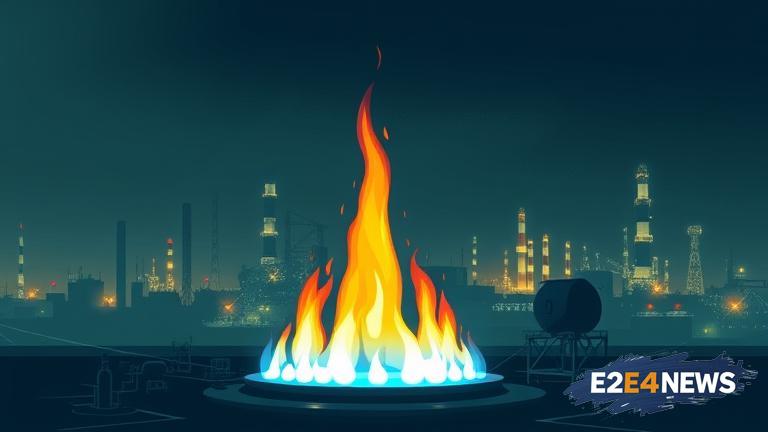The Pakistani industry has come out strongly against the proposed 50% increase in gas tariffs, with stakeholders arguing that such a move would have severe consequences for the country’s economy. The industry leaders have warned that the hike would lead to increased production costs, making it difficult for them to compete in the global market. The proposed increase is expected to affect various sectors, including textiles, fertilizers, and cement, which are among the largest consumers of gas in the country. The industry has urged the government to reconsider the proposal, citing the already high cost of doing business in Pakistan. The government has proposed the increase in gas tariffs as part of its efforts to reduce the circular debt in the energy sector. However, the industry has argued that the move would only serve to exacerbate the problem, rather than providing a solution. The proposed hike has been criticized by various trade bodies, including the Pakistan Textile Exporters Association and the All Pakistan Cement Manufacturers Association. The associations have warned that the increase would lead to a decline in exports, as well as a reduction in employment opportunities. The industry has also expressed concerns over the lack of consultation with stakeholders before proposing the hike. The government has been accused of not taking into account the potential impact of the increase on the industry, and of not providing any relief to the affected sectors. The proposed hike has also been criticized by opposition parties, which have accused the government of trying to pass on the burden of its own inefficiencies to the industry. The government has defended the proposal, arguing that it is necessary to reduce the circular debt and to ensure the sustainability of the energy sector. However, the industry has argued that there are other ways to address the issue, such as improving the efficiency of the energy sector and reducing losses. The proposed hike has sparked widespread protests and demonstrations, with industry leaders and workers taking to the streets to express their opposition. The government has been urged to reconsider the proposal and to engage in consultations with stakeholders to find a solution that works for everyone. The industry has warned that if the proposal is implemented, it would lead to a decline in economic activity, as well as a reduction in government revenue. The proposed hike has also been criticized by international organizations, which have warned that it would have negative consequences for the country’s economy. The World Bank has warned that the increase would lead to a decline in economic growth, as well as a reduction in investment. The industry has urged the government to take into account the potential impact of the increase on the economy, and to consider alternative solutions. The proposed hike has sparked a heated debate, with some arguing that it is necessary to reduce the circular debt, while others have argued that it would have severe consequences for the industry. The government has been urged to reconsider the proposal and to engage in consultations with stakeholders to find a solution that works for everyone. The industry has warned that if the proposal is implemented, it would lead to a decline in economic activity, as well as a reduction in government revenue. The proposed hike has also been criticized by experts, who have warned that it would have negative consequences for the country’s economy. The experts have argued that the increase would lead to a decline in economic growth, as well as a reduction in investment. The industry has urged the government to take into account the potential impact of the increase on the economy, and to consider alternative solutions. The proposed hike has sparked widespread protests and demonstrations, with industry leaders and workers taking to the streets to express their opposition. The government has been urged to reconsider the proposal and to engage in consultations with stakeholders to find a solution that works for everyone.
